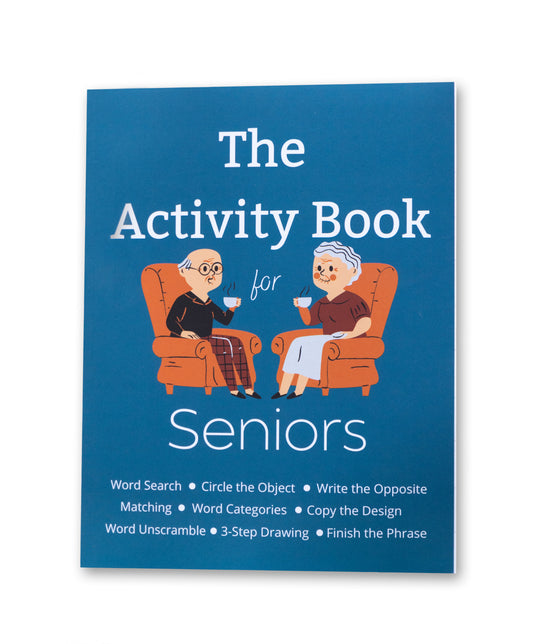
Dealing with Hallucinations in Dementia
Share
Example of my mom's hallucinations
It was about 18 years ago that I remember getting a call from my mom that really jolted my concern about her. At that time she lived with my dad 2 hours away, so my ability to check in on her was limited. Early one morning she called me in a whisper, “Lisa, there are a bunch of kids in the house. What should I do?” I was startled and naturally asked more questions.

I came to find out that she thought there were over 10 young kids in her home waiting for the morning school bus. However, the bus didn’t come to pick them up, which was concerning to her. My mom didn’t want to alarm the kids and didn’t know what to do. My mom said she already called the local school and didn’t get anywhere, and was now considering calling the police. She was home alone. It took me quite some time on that phone call to figure out that what she was experiencing wasn’t real, but she had a powerfully convincing story! I now know she was experiencing hallucinations, which often come with having Lewy Body Dementia. I remember responding to her by telling her I thought maybe what she was seeing wasn’t real. Since that conversation 18 years ago, she has never failed to keep me on my toes with how to respond to her. I don’t always know what to say, but I have come to peace with two things. First, the words I say need to make her feel validated and accepted. Second, I found out soon enough that helping her feel good during a conversation meant going along with her reality rather than my reality.
Through a series of good and bad events, my mom came to live at an assisted living facility near my house 5 years ago. She sometimes thinks the facility looks like the school she taught as a second-grade teacher for many years. My mom would talk about things happening in the facility as if it were a school. As long as it made her feel good about herself, I’d go along with these ideas. For example, she would say. “Oh, I have to get to bed, I’m so tired and have to work tomorrow.” I’d respond with something like, “Oh, tomorrow is a school holiday, you have tomorrow off.” And that calmed her.
How do you respond to dementia hallucinations?
I recently was going for a drive with my mom and I brought up some of the addresses that she’s lived at to help spark a conversation. When I mentioned the address of the home she grew up in, she suddenly became agitated, “Well, I don’t want to go there right now to see my dad! That’s too long of a drive!” Her dad passed away 22 years ago. I immediately went with her reality, and responded in a calm and low tone of voice, “No problem, we won’t go there today.” She calmed down without a problem, and I gave her some quiet space to decompress then changed the conversation to something else. Communicating with my mom has turned into quick-thinking decisions on what she needs to hear, which is oftentimes at odds with what the truth of the situation is. At her moderate to severe stage of dementia, her ability to remember conversations is minimal, so what matters is how she feels in the current moment. I want her to be at peace and enjoy her life, so I say what brings that about.
How do you deal with hallucinations in the elderly?
If your loved one with dementia experiences hallucinations as my mom has, let me give you some suggestions to help guide you. First, be sure their doctor, especially their neurologist, is aware of the hallucinations and how frequently they’re occurring. Oftentimes, the hallucinations can be reduced with medications. When determining how to respond to your loved one’s hallucinations, determine if the hallucinations are causing them distress. If they’re not harmful, consider just letting your loved one speak and remain calm. If the hallucinations are disturbing to them, remain calm, validate the feelings they are having, and consider distracting them with a walk, a task, a snack, or a different topic of conversation. Avoid arguments about whether what they’re seeing is real or not. If they ask, you can explain calmly that you’re not seeing what they are. Consider shadows or noises that may be triggering to what your loved one is experiencing and make proactive changes to reduce the triggers such as improving the lighting in a room. Dealing with hallucinations can be confusing and it may take time to figure out how to deal with them. But keeping these tips in mind can help you on your journey.






